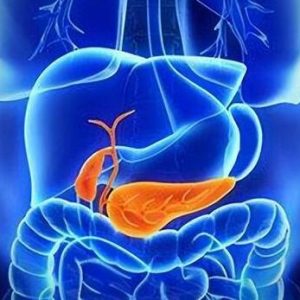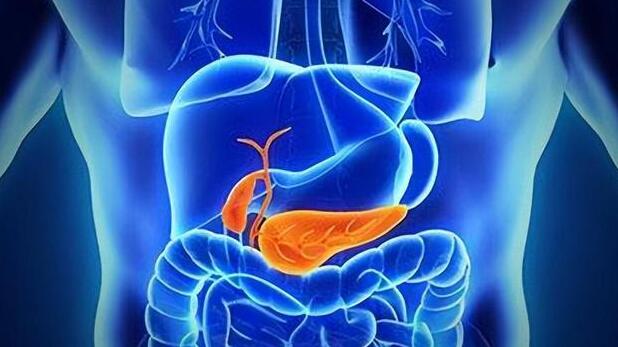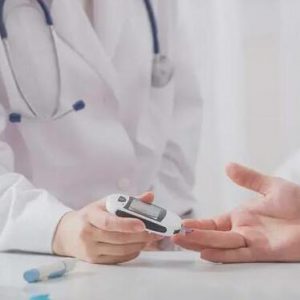Gastric polyps are benign growths that can develop inside the lining of the stomach. These growths can occur singularly or in multiples and vary in size and shape. While the majority of gastric polyps pose no serious health concerns, there is a potential risk for them to evolve into cancer in certain cases.

Types of Gastric Polyps:
- Adenomatous polyps contain glandular tissue and carry a potential risk for malignancy.
- Inflammatory polyps are often associated with chronic gastritis.
- Hyperplastic polyps are typically benign and rarely transform into cancer.
Symptoms of Gastric Polyps:
- Upper abdominal discomfort or pain: This symptom can manifest as a dull ache, colicky pain, or general discomfort.
- Indigestion: Patients may experience symptoms like heartburn, bloating, and belching.
- Nausea or vomiting: Some patients may feel nauseated or even vomit.
- Bleeding: Larger or pedunculated polyps can bleed due to friction against the stomach wall, leading to black, tarry stools (indicative of upper gastrointestinal bleeding) or occult blood positivity (microscopic traces of blood not visible to the naked eye).
- Anemia: Due to chronic micro-bleeding, patients may develop iron-deficiency anemia.
Many gastric polyps are discovered incidentally during endoscopic procedures (such as upper endoscopy or routine gastroscopy for other reasons), rather than due to their symptoms. If any of the above symptoms arise, it is crucial to seek medical attention promptly for diagnosis and treatment.
Causes of Gastric Polyps:
- Chronic gastritis: Long-standing gastritis, particularly that caused by Helicobacter pylori infection, can lead to changes in the stomach lining, potentially resulting in polyp formation.
- Genetic factors: Certain genetic syndromes (like Familial Adenomatous Polyposis or Gardner syndrome) increase the risk of developing gastric polyps.
- Medications: Prolonged use of drugs such as proton pump inhibitors (PPIs), used to treat excessive stomach acid, has been linked to the development of gastric polyps in some studies.
- Intestinal metaplasia: A change where stomach mucosal cells transform into more intestinal-like cells, which can contribute to polyp formation.
- Post-ulcer or post-surgical changes: Abnormal mucosal regeneration following stomach ulcer healing or partial gastrectomy can result in polyp development.
- Aging: As individuals age, degenerative changes in stomach mucosal cells can lead to polyp formation.
- Nutrient deficiencies: Lack of certain trace elements and vitamins (like vitamin C, vitamin D, and calcium) may also be associated with the development of gastric polyps.
- Immunological status: Autoimmune diseases or other conditions affecting the immune system may increase the risk of gastric polyps.
Not all causes of gastric polyps are well understood, and many may be harmless. However, understanding the etiology of polyps is essential for assessing their potential for malignant transformation and for devising appropriate monitoring and treatment strategies.
Diagnosing Gastric Polyps:
- Endoscopy (Gastroscopy): The most common and direct method for diagnosing gastric polyps involves using a flexible tube (endoscope) equipped with a light and camera, inserted through the mouth and down the esophagus into the stomach. This allows for clear visualization of the stomach lining and the discovery of polyps, with the possibility of taking small tissue samples (biopsies) for further analysis.
- Biopsy: If polyps are found during endoscopy, doctors typically take a small tissue sample for pathological examination to determine the type of polyp and whether it is malignant.
- Imaging tests: Although endoscopy is the preferred diagnostic method, other imaging tests like CT scans or barium swallow X-rays may be conducted to help assess the size, number, and precise location of polyps, especially when considering surgical intervention.
- Blood tests: After identifying gastric polyps, doctors may recommend a blood test to check for anemia or other issues related to the polyps.
- Follow-up observation: For small, benign, and asymptomatic gastric polyps, regular endoscopic surveillance may be sufficient to monitor for changes.
Once gastric polyps are diagnosed, the doctor will decide on a treatment plan based on the type, size, number of polyps, and the patient’s overall health status.
Treating Gastric Polyps:
- Monitoring: For small, benign, and asymptomatic polyps, a wait-and-watch approach with regular endoscopic monitoring may be chosen.
- Endoscopic removal: Larger, symptomatic polyps, or those at risk of malignancy can be removed via endoscopic polypectomy techniques such as grasp forceps, snare cautery, or band ligation.
- Medication: If gastric polyps are associated with H. pylori infection, eradicating the bacteria may lead to shrinkage or disappearance of certain types of polyps. For polyps related to long-term PPI use, discontinuation of these drugs could be considered.
- Surgery: In rare cases, such as very large polyps or situations where endoscopic surgery cannot completely remove all polyps, open surgery may be necessary for polyp removal.
- Dietary and lifestyle changes: While a direct link is not yet clearly established, maintaining a healthy diet and lifestyle could potentially reduce the occurrence of gastric polyps.
- Genetic counseling: For hereditary gastric polyposis, genetic counseling is recommended to assess the risk for family members and provide guidance.
Before settling on a treatment plan, biopsies are usually performed to determine the nature of the polyps. If gastric polyps are diagnosed as pre-cancerous or cancerous, more aggressive treatment methods may be required along with more frequent monitoring.
The treatment plan should be tailored by healthcare professionals based on the individual’s specific circumstances.
Preventing Gastric Polyps:
- Maintain a healthy diet: Consume fiber-rich foods like fruits, vegetables, and whole grains. Reduce intake of high-fat and high-salt foods.
- Avoid smoking and limit alcohol: Both smoking and excessive alcohol consumption have been linked to digestive tract cancers; quitting smoking and drinking moderately can lower the risk of stomach diseases.
- Manage medication intake: Long-term use of PPIs or other medications that may alter the stomach environment should be monitored under a doctor’s guidance.
- Regular check-ups: Undergo routine health screenings, especially if there is a family history of gastric cancer or a genetic predisposition to gastric diseases.
- Control H. pylori infections: If infected with H. pylori, proper treatment can reduce the risk of gastritis and gastric polyps.
- Maintain a healthy weight: Obesity is associated with an increased risk of various diseases, including gastric polyps and gastric cancer.
- Manage stress: Although the direct link between stress and gastric polyps is not yet clear, long-term stress can impair overall health and affect digestive functions.
- Stay active: Engaging in regular physical activity promotes overall health and may help reduce the risk of stomach diseases.
- Avoid thermal injury to the digestive tract: Steer clear of consuming overly hot foods or beverages that could damage the stomach lining.
Even with all preventive measures, it is still possible to develop gastric polyps. Therefore, any gastric discomfort should prompt consultation with a doctor and appropriate investigations.










